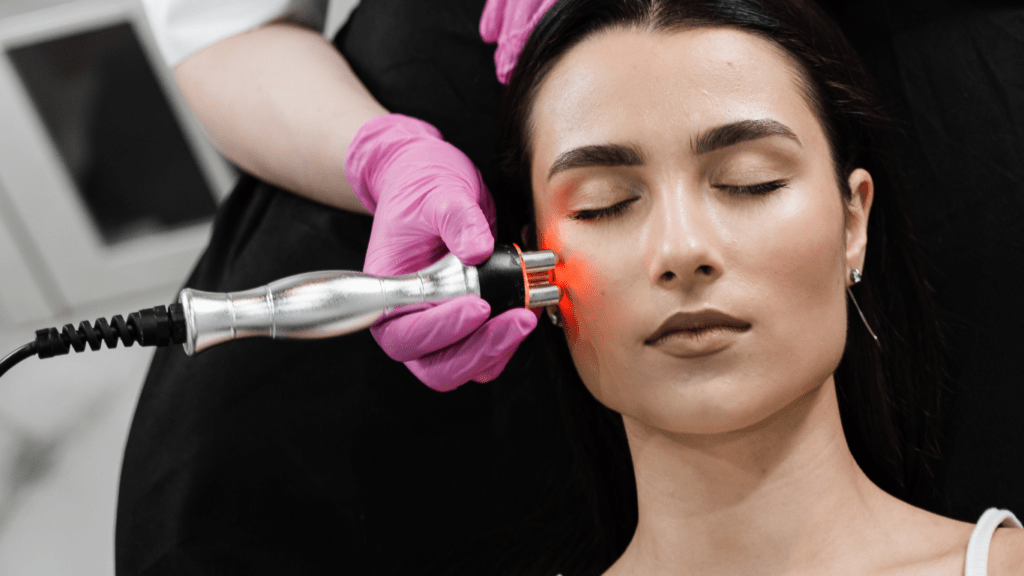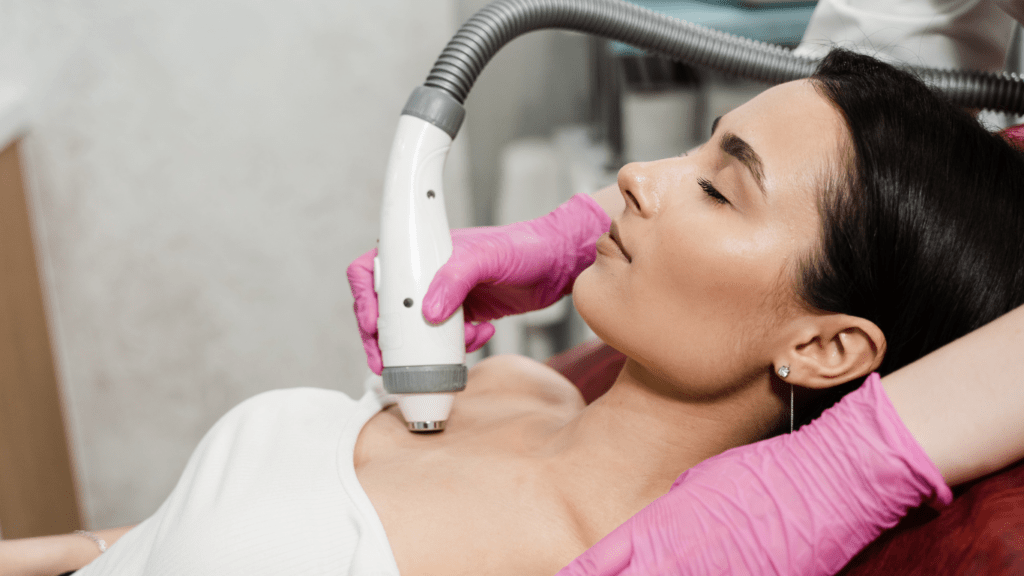The Evolution of Beauty Tech
The beauty industry has seen monumental changes over the past decades, thanks to the integration of technology. Initially, beauty tech included basic tools like electronic face brushes. Today, we’re witnessing AI-driven applications revolutionize skincare analysis. Companies now offer devices that scan skin, analyze it, and recommend products tailored specifically to individual needs.
In recent years, augmented reality (AR) has allowed consumers to try on makeup virtually. Brands like L’Oréal and Sephora use AR to let users see how different products, such as lipsticks and eyeshadows, would look on their skin without physically applying them. This innovation makes it easier for consumers to make informed decisions.
3D printing has also emerged as a game-changer in beauty tech. Companies manufacture customized face masks and makeup precisely tailored to user preferences. For instance, Face Mask 3D printers create masks with exact ingredient formulations matching skin type requirements.
Furthermore, skincare devices with app integration provide personalized skincare insights. For example, Foreo’s Luna Fofo uses sensors to assess skin hydration and give feedback through an accompanying app. These devices enable users to track skin health and adjust routines accordingly.
With a continuous influx of tech innovations, the beauty industry evolves rapidly. This transformation isn’t just about enhancing appearance; it’s fundamentally reshaping how we perceive and interact with skincare and cosmetic products.
Cutting-Edge Skincare Innovations
The beauty industry constantly evolves, and recent technological advances are pushing skincare into a new era.
AI and Machine Learning in Skincare
AI and machine learning are transforming skincare by enabling hyper-personalized solutions. AI algorithms analyze skin types, conditions, and needs based on photographs and user data, offering targeted product recommendations. Brands like Olay and Neutrogena use AI-driven apps to examine skin issues, ranging from wrinkles to hydration levels.
Personalized Skincare Solutions
Personalized skincare solutions tailored to individual needs are now more accessible thanks to technology. Companies like SkinCeuticals and Curology employ advanced diagnostic tools to create bespoke products. These tools assess skin health holistically, ensuring ingredients match users’ specific requirements. This customization maximizes product efficacy and user satisfaction.
Advanced Skin Analysis Tools
Sophisticated skin analysis tools, such as handheld devices and connected apps, provide in-depth insights into skin health. Devices like Visia from Canfield Scientific capture high-resolution images to evaluate various skin metrics. These metrics include:
- texture
- pores
- pigmentation
- UV damage
giving users a comprehensive understanding of their skin’s condition and guiding ideal treatment plans.
Revolutionary Cosmetic Technologies

Advancements in cosmetic technologies are redefining the beauty landscape. Smart makeup products, virtual try-on tools, and 3D printing are leading this transformation.
Smart Makeup Products
Smart makeup products integrate technology to enhance user experience and personalize beauty routines. Wearable devices like the Opte Precision Skincare System detect skin imperfections and apply a perfect blend of makeup in real-time, offering flawless results. Another example is the Perso by L’Oréal, which combines AI and 3D printing to create customized skincare and makeup solutions based on user data and preferences. These products ensure precision, ease, and efficiency, setting a new standard in beauty tech.
Virtual Try-On Tools
Virtual try-on tools revolutionize how consumers shop for makeup, offering interactive and immersive experiences. Brands like Sephora and MAC Cosmetics harness AR to let customers try on different shades and products virtually. By using smartphone cameras, these tools simulate makeup application, allowing users to see how products will look on their skin without physical trials. This reduces product returns and increases consumer confidence in online purchases.
3D Printing in Cosmetics
3D printing is breaking new ground in the cosmetics industry, enabling unparalleled customization. Companies like Mink have developed 3D printers that can create personalized makeup on demand. Users can choose any color, pattern, or finish and print their desired cosmetics at home. Additionally, 3D printing can produce tailored face masks and patches, ensuring a perfect fit and targeted skincare solutions. This technology provides endless possibilities for innovation and personalization in beauty products.
The Role of Big Data
Big data plays a critical role in transforming the beauty industry by enhancing product development and consumer experience. By analyzing massive datasets, companies gain insights into consumer preferences, skin types, and purchasing behaviors.
Enhancing Product Development
Using big data, beauty companies can design products that cater to specific needs. For example, L’Oréal uses data analytics to identify emerging trends and develop products that align with consumer desires. This leads to more effective and targeted skincare solutions.
Personalized Consumer Experience
Big data enables brands to offer personalized recommendations. By analyzing user data, algorithms suggest products tailored to individual needs. Olay’s Skin Advisor app, for instance, uses a selfie to analyze skin quality and recommend suitable products, improving customer satisfaction.
Monitoring Market Trends
Big data helps companies keep track of market trends and consumer sentiments. Tools like social media analytics provide real-time feedback on product launches and marketing campaigns, allowing brands to adapt quickly. This rapid response capability ensures products stay relevant in a fast-paced industry.
Optimizing Supply Chains
Effective supply chain management is crucial for timely product availability. Big data analytics predict demand, optimize inventory levels, and reduce excess stock. Brands like Sephora use these insights to streamline operations, ensuring that popular products remain in stock while reducing waste.
Advancing Research and Development
In R&D, big data accelerates innovation by providing insights into skin biology and ingredient efficacy. Researchers can analyze vast datasets to identify correlations and patterns that would be impossible to find manually. This leads to breakthroughs in formulations and technologies that cater to diverse skin conditions.
Improving Customer Relations
Big data enhances customer relations by providing deeper insights into consumer behavior. Brands can tailor marketing strategies, create targeted campaigns, and engage with customers more effectively. Personalized emails, offers, and recommendations increase consumer loyalty and brand trust.
Ensuring Product Safety and Compliance
Ensuring product safety and regulatory compliance is critical. Big data can track and analyze adverse reactions, review customer feedback, and monitor compliance with regulations. This proactive approach helps brands maintain high safety standards and build consumer trust.
Incorporating big data into beauty tech not only streamlines processes but also offers highly customized solutions and improves overall consumer satisfaction. This data-driven approach will continue to revolutionize the skincare and cosmetics industry.
Sustainable and Green Beauty Tech
Eco-friendly beauty tech is gaining traction, driven by growing consumer awareness of environmental impact. Brands are integrating sustainable practices into their product development to meet this demand.
- Biodegradable Packaging
Biodegradable packaging reduces waste through materials that break down naturally. Companies like Lush and Ethique spearhead this movement, using compostable and recyclable containers.
- Refillable Products
Refillable cosmetics minimize plastic use. Brands like Kjaer Weis design elegant, refillable compacts and lipstick cases. This approach not only cuts waste but also promotes a luxurious image.
- Clean Ingredients
Clean beauty focuses on eliminating harmful chemicals. Brands such as Tata Harper and ILIA prioritize natural, organic components without synthetic additives, ensuring safer product profiles.
- Waterless Formulas
Waterless formulas conserve water resources. Products like solid shampoos and skincare bars from brands like Ethique and LUSH offer concentrated benefits with less packaging.
- Sustainable Sourcing
Sustainable sourcing ensures ethical ingredient procurement. Companies like The Body Shop and Aveda partner with fair-trade organizations to source raw materials responsibly.
- Green Manufacturing
Green manufacturing practices reduce carbon footprints. Brands like REN Clean Skincare utilize renewable energy sources and minimize water usage in production processes.
- Digital Consultations
Digital consultations reduce physical interactions and carbon footprints. Apps from brands like Proven and Function of Beauty allow personalized skincare assessments from home, cutting down on transportation emissions.
- Upcycled Ingredients
Upcycled ingredients give new life to byproducts. Brands like UpCircle Beauty create formulations using discarded coffee grounds and fruit extracts, reducing waste and maximizing resource use.





